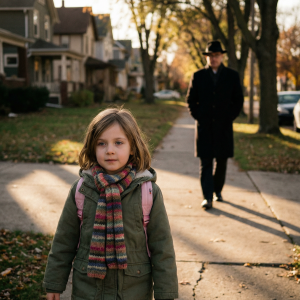When Judy Norton emerged in Los Angeles this week, the internet erupted. The actress who captured hearts as the determined Mary Ellen Walton on The Waltons suddenly found herself at the center of a heated discussion about growing older in the public eye.
Norton’s journey to stardom began in 1971 when she landed a role on a fledgling drama centered around a Depression-era family eking out an existence in the Virginia mountains. The Waltons would eventually become a cultural touchstone, with Norton’s dynamic performance as Mary Ellen cementing her status as America’s sweetheart.
The road to success, however, was far from smooth. The show struggled initially, landing in what television executives grimly referred to as a “death block”—programming real estate where series went to die.
“The producers really mobilized a grassroots effort, buying advertisements and conducting interviews throughout America’s heartland, where our true viewership lived,” Norton recalled in a conversation with Fox News.
“They essentially appealed directly to audiences to give us a chance,” she continued. “And those people became our foundation… They’re the dedicated viewers who still tune in for reruns today.”
For ten years, from 1971 through 1981, The Waltons captivated audiences. Its influence endures through syndication, maintaining a devoted following. For Norton, the Mary Ellen character has always represented something profoundly personal.
Navigating expectations
“I understood people viewed me as someone to aspire to,” she reflected. “That awareness motivated me to push myself further.” She remains committed to self-improvement: “I never stop learning or striving to do better—it’s important to me to set a positive example.”
Following The Waltons’ conclusion, Norton encountered the same predicament that haunts countless former child actors: escaping the shadow of their defining role. In recent decades, she’s largely retreated from public view.
That changed when the 67-year-old stepped out recently, looking elegant in a floral sundress paired with wedge sandals, dark glasses, and a compact tan purse.
Though she appeared composed and stylish, her appearance unleashed a torrent of online commentary—from warm reminiscence to unexpectedly cruel judgment.
The controversial photoshoot
“She was everyone’s ’70s television fantasy,” one admirer posted. “Mary Ellen embodied intelligence, strength, and beauty—the complete package every young woman aspired to become.”
Yet not everyone focused on The Waltons. Many resurrected memories of Norton’s controversial 1985 Playboy spread—a calculated gamble to shed her wholesome persona. The nude pictorial was designed to rebrand her as a mature, versatile performer. It spectacularly misfired.
“She had more bush than Alan Titchmarsh’s garden!” one commenter quipped online. “That’s just how things were before grooming became the norm,” another responded.
Rather than empowering Norton, the shoot transformed her into gossip column fodder.
“I received considerable guidance from my representation then,” Norton explained during a 2018 interview. “They believed it would benefit my career trajectory. That assessment proved inaccurate.”
“Looking back with today’s perspective, I’d have chosen differently,” she acknowledged. “The experience taught me valuable lessons about trusting my own judgment over others’, regardless of their supposed expertise.”
While Norton anticipated the Playboy feature would redirect her career path, it achieved precisely the opposite.
“Rather than opening opportunities, it created obstacles,” Norton confessed. “But you accept reality and keep moving forward.”
After The Waltons wrapped, Norton made sporadic appearances on programs like The Love Boat and various game shows, though much of her subsequent work remained connected to the Walton franchise—participating in holiday specials and reunion projects throughout the 1980s and 1990s.
As television opportunities diminished, Norton pivoted toward theater. She authored, helmed, and starred in regional productions throughout North America—sustaining her craft quietly, far removed from Hollywood’s glare.
Defending authenticity
Norton began a modest resurgence in 2013, accepting roles in independent cinema and made-for-television movies. She methodically reconstructed her acting portfolio, maintaining consistent work through 2022.
While reactions to her recent sighting included some callous observations about how “time shows no mercy,” many supporters came to her defense.
“You people are terrible. She’s 67 years old. What exactly should she look like?” one defender wrote. “If you’re fortunate, you’ll reach her age someday too.”
Someone else contributed, “She looks authentic. That’s far more than most industry women her age can claim.”
Today, many years past her peak fame—and the controversy that accompanied it—Judy Norton stands as a testament to the complicated and enduring nature of television celebrity.





